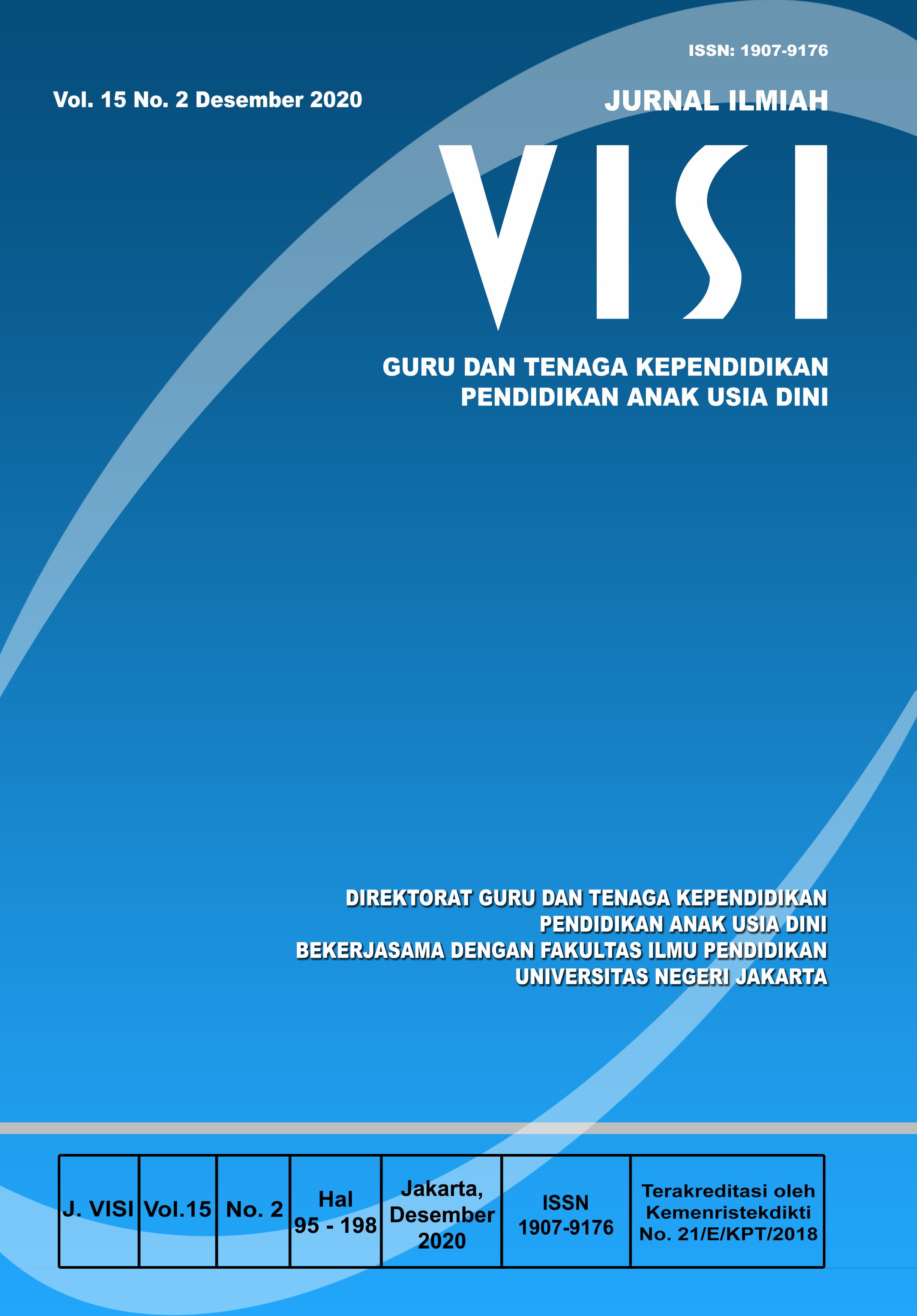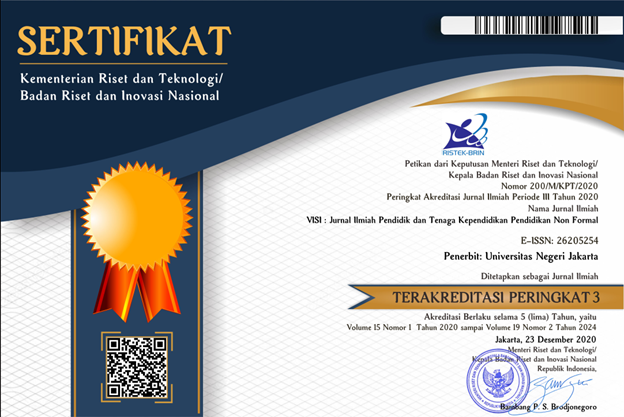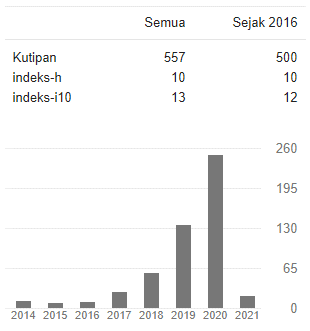SCHOOL AND FAMILY PARTNERSHIP: INFORMAL LEARNING CONTEXT TO BUILD CHILDREN CHARACTER
KEMITRAAN SEKOLAH DAN KELUARGA: KONTEKS PEMBELAJARAN INFORMAL DALAM MEMBANGUN KARAKTER ANAK
DOI:
https://doi.org/10.21009/JIV.1502.10Keywords:
character, collaboration, informal learning, partnership, karakter, kemitraan, kolaborasi, pembelajaran informalAbstract
This present study aims to describe the pattern of partnerships between schools and families in basic education as part of character building for students in the context of informal learning in primary schools. The study was conducted using a descriptive qualitative approach with 9 school principals and committee members as participants. Participants were recruited from both public and private schools based on regional representation. Data analysis was conducted inductively by linking of family involvement aspects with interactive analysis. The results showed that character building is the responsibility of both the schools and families which is achieved through priority programs implemented in all elementary schools. These programs involved institutional cooperation, family-school collaboration at home and family-teacher communication. The study also found that involvement in all elementary schools was mostly represented by mothers (85%). Character building can also be done by accelerating school-family partnership in a more informal learning context. Through this families and schools go hand in hand promoting culture of achievement, literacy related habits five principles which comprise smile, greeting, say hello, polite, well-mannered and five involvement which are corporation, community leaders in the villages, universities, family and city government. Involving families in children's education evidently provides confidence, comfort and enthusiasm in learning at home and at school.
Artikel ini bertujuan untuk mendeskripsikan pola kemitraan antara keluarga dan sekolah dalam pendidikan dasar sebagai bagian dari pembentukan karakter siswa dalam konteks pembelajaran informal di sekolah dasar. Penelitian ini dilakukan dengan pendekatan kualitatif deskriptif dengan partisipan 9 kepala sekolah dan komite sekolah. Peserta direkrut dari sekolah negeri dan swasta berdasarkan keterwakilan wilayah. Analisis data dilakukan secara induktif dengan mengaitkan aspek keterlibatan keluarga dengan analisis interaktif. Hasil penelitian menunjukkan bahwa pembangunan karakter merupakan tanggung jawab sekolah dan keluarga yang dicapai melalui program prioritas yang dilaksanakan di semua sekolah dasar. Program-program ini melibatkan kerjasama kelembagaan, kerjasama keluarga-sekolah di rumah dan komunikasi keluarga-guru. Studi ini juga menemukan bahwa keterlibatan di semua sekolah dasar sebagian besar diwakili oleh ibu (85%). Pengembangan karakter juga dapat dilakukan dengan mempercepat kemitraan sekolah-keluarga dalam konteks pembelajaran yang lebih informal. Melalui ini keluarga dan sekolah bahu membahu mempromosikan budaya berprestasi, lima prinsip terkait kebiasaan literasi yaitu senyum, sapa, sopan, santun, menanyakan kabar dan lima keterlibatan yaitu korporasi, tokoh masyarakat di desa, perguruan tinggi, keluarga dan pemerintah kota. Melibatkan keluarga dalam pendidikan anak ternyata memberikan rasa percaya diri, kenyamanan dan semangat dalam belajar di rumah dan di sekolah.
Downloads
Published
How to Cite
Issue
Section
License
Authors who publish with this Journal agree to the following terms:
- Author retain copyright and grant the journal right of first publication with the work simultaneously licensed under a creative commons attribution licensethat allow others to share the work within an acknowledgement of the work’s authorship and initial publication of this journal.
- Authors are able to enter into separate, additional contractual arrangementfor the non-exclusive distribution of the journal’s published version of the work (e.g. acknowledgement of its initial publication in this journal).
- Authors are permitted and encouraged to post their work online(e.g. in institutional repositories or on their websites) prior to and during the submission process, as it can lead to productive exchanges, as well as earlier and greater citation of published works.
- Users/public use of this website will be licensed to CC BY-NC-SA Creative Commons Attribution-NonCommercial-ShareAlike 4.0 International License









